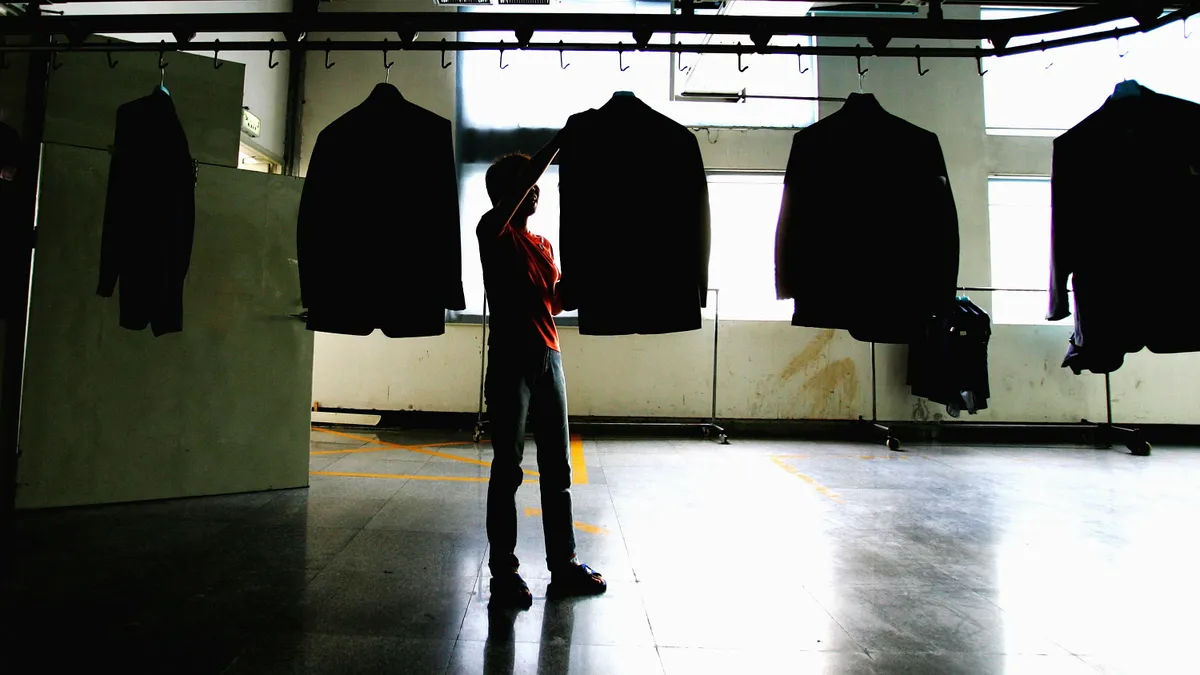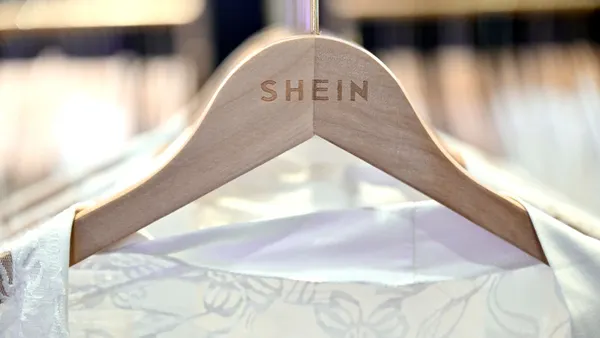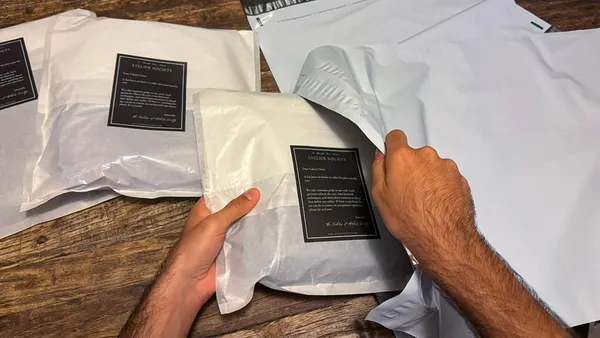TrusTrace, a Swedish software platform focused on supply chain transparency, announced a new pilot product this week to boost transparency and sustainability in textiles.
The product, called a Digital Product Passport, or DPP, is designed to be in line with proposed EU regulations calling for DPPs to be added to all textiles sold in Europe by 2030. These new guidelines, which may be adopted as early as 2024, are outlined in the EU Strategy for Sustainable and Circular Textiles, and could be in effect by 2027.
TrusTrace’s DPP is based on the current global standards for “interoperability and seamless information sharing” through the value chain, according to a TrusTrace press release sent to Fashion Dive. In layperson terms, it means the digital tags will be able to connect and exchange information with different computer systems and readily connect and exchange information at every step of the product’s journey.
Introducing DPPs is part of the European Commission’s actions to create more circularity in the textile ecosystem. Its other proposed actions by 2030 include setting design requirements for textiles to make them last longer and make them easier to repair and recycle, plus discouraging the destruction of unsold or returned textiles. It's part of the European Green Deal proposal to make sustainable products the norm in the EU.
The TrusTrace DPP will be tested by tagging some of the items currently in production by fashion brands Kappahl and Marimekko with an ID carrier that tracks supply chain data. That data includes the item’s Global Trade Identification Number, relevant commodity codes, compliance documents, substances of concern, information about the manufacturer and more. Through a QR code on the garment, consumers can view the garment’s information.
TrusTrace developed the system that consumers will view when they scan the QR code. It is working with other members of the supply chain to create a data protocol to prioritize information displayed. It isn’t creating its own protocol, Shameek Ghosh, co-founder and CEO of TrusTrace, said in the release, but it is updating it as the EU regulations are formed by lawmakers.
“The protocol has been designed to be flexible to ensure we can adapt to all the changes coming in the future,” Ghosh said.
The product is being developed as part of the Trace4Value project, a program meant to bring together industry leaders to create more sustainable value chains.
The project is partly funded by Vinnova, which is the Swedish Agency for Innovation Systems, and RISE Research Institute of Sweden. TrusTrace’s partners on the DPP project include Marimekko, Kappahl, Elis, SIS Swedish Institute for Standards, GS1 Sweden, TEXroad Foundation, Circularista, 2bPolicy, Trimco Group, Rudholm and Haak and Aalto University.
“Our goal with the project is to increase the traceability and circularity in the value chains,” Ghosh said. “With a global identification system for an item and its components, we can connect it to multiple sources of data to enable accessible product traceability for consumers, brands and authorities.”











